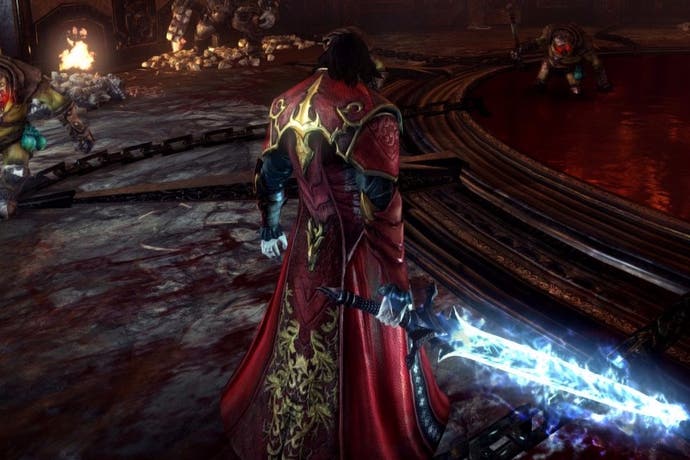"We got caught in a s***storm"
The makers of Castlevania: Lords of Shadow hit back.
In October 2010, a little-known Spanish developer, backed by a veteran Konami employee finally given his shot at the bigtime, released a reboot of one of the most beloved Japanese-created games of all time. Despite concern among the franchise's most ardent fans, Castlevania: Lords of Shadow launched to critical and commercial acclaim. The overlords at Konami were pleased.
Off the back of this success, developer MercurySteam and producer Dave Cox were charged with creating more Lords of Shadow games. A Metroid-inspired 2D game called Mirror of Fate for Nintendo 3DS was followed, in 2014, by a sequel proper. But Lords of Shadow 2 failed to hit the high notes set by its predecessor, and reviews were harsh. Here's our own Christian Donlan on the sequel:
"Sharpening the disappointment is the fact that the team at MercurySteam has already made a good game, and perhaps had an opportunity here to make a great one. The first Lords of Shadow was a sweet surprise. The follow-up is a hostage to a story it tells badly, and a prisoner within a dull urban maze that refuses to become a characterful exploratory playground. To live on but to be diminished - that's the fate of the vampire in Castlevania's lore. Sadly, it's a bit of an epitaph for this well-meaning but bloated game as a whole."
The overlords at Konami were not pleased. Amid a dramatic overhaul of its development strategy that would see a shift to focus on mobile games, Konami said thank you and goodbye to MercurySteam, which fancied sinking its teeth into non-Dracula-related video games anyway. Cast adrift, Dave Cox, who had been with Konami for a whopping 17 years, left the company he loved, one of many casualties of the new way.
All the while, MercurySteam had a more pressing concern to deal with. Worrying accusations about its culture, and allegations directed at its co-founder and creative force, Enric Alvarez, emerged online. A Spanish publication suggested Lords of Shadow 2 suffered a troubled development, and much of the blame lay at Alvarez's door. MercurySteam's response was to stay silent - until now.
Here, in a sweeping interview with Eurogamer, Enric Alvarez and Dave Cox offer their side to the story, admitting to Lords of Shadow 2's failings while pointing to its achievements. The pair discuss letting Dracula turn into a rat for stealth, working with Metal Gear creator Hideo Kojima, and hit back at those who would anonymously attack the studio. And they look to the future. Fresh from the shackles of a publishing contract, MercurySteam - once again with Dave Cox's help - is going it alone, self-funded and self-publishing the multiplayer game Raiders of the Broken Planet.
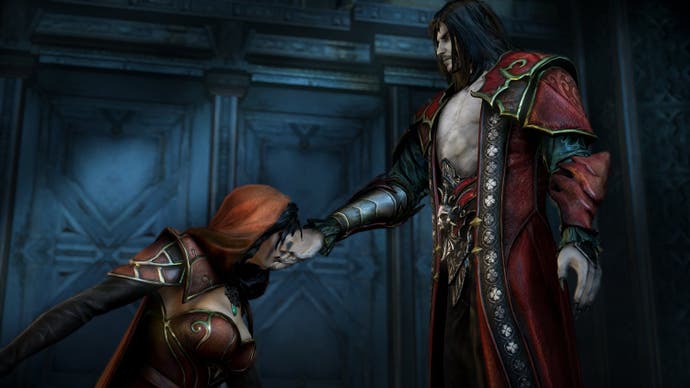
How would you describe the relationship with Konami during the development of Castlevania: Lords of Shadow 2?
Dave Cox: Believe it or not, Konami were very hands-off in many ways, especially on the first one. Because Mr. Kojima has associated himself with the project, it meant people in Japan weren't worried about a western developer taking on such a big franchise. That really helped on the first game.
On the second game, they had more oversight. There was more pressure involved because it was an important project for the company. There was a lot of expectation. But nevertheless, Konami as a company was supportive of its development staff, its teams and its marketing people. I've got nothing bad to say about Konami, actually. I had a memorable 17 years working there.
It's fair to say Lords of Shadow 2 wasn't as well received as the first game. One of the things you suspect is Konami got stuck in for the sequel and perhaps did things the developers weren't comfortable with. But you're saying that wasn't the case.
Dave Cox: That wasn't the case, no. The criticism we got on the game from the press was all of our making, honestly.
What were the chief reasons for it?
Dave Cox: The difference between the first game and the second game was the first game had the player going on a journey. It had a lot of different environments. It had a feeling of exploring a world. The second game was closer and more confined. It was more about the journey within Dracula himself. The first one resonated more because of that more epic quest, that journey. The second one obviously didn't.
I have to say though, despite the critical mauling the game got, the game did pretty well. It's still one of the top-selling Castlevanias of all time, and is still selling now. It's a profitable game for Konami. So despite the negative feedback from the press, the user feedback has been good. If you look on Steam and Amazon, the reviews are positive.
Enric Alvarez: No game is perfect, okay? We also had a lot of hate for the first Lords of Shadow. We received death threats in the studio.
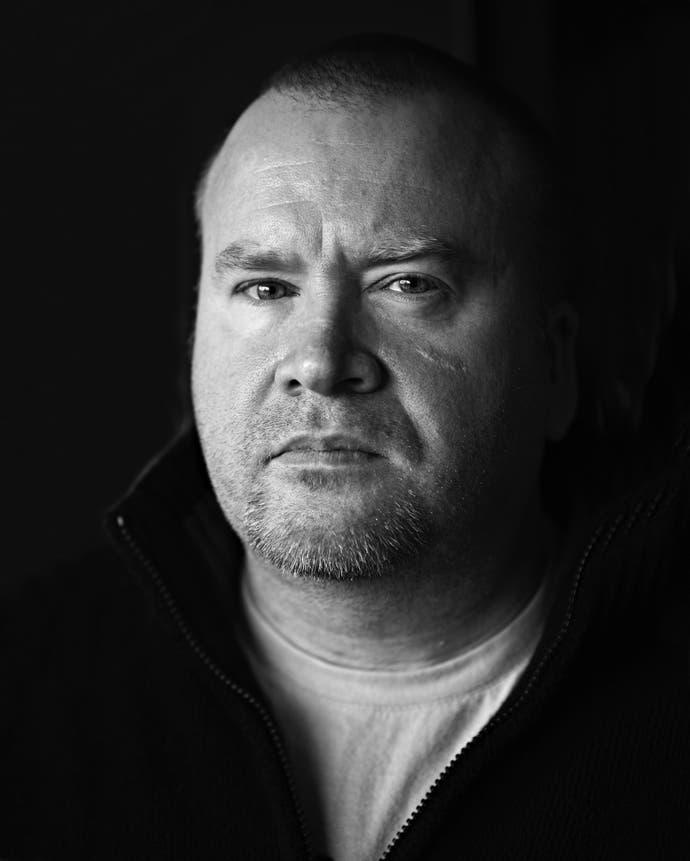
What happened?
Enric Alvarez: One day we got a letter written in a way that the first thing we did was call the police. You can imagine what it was like. The first Lords of Shadow was well-received by the critics, but don't forget that we had tonnes of criticism and also very bad reviews about that game. This shifted in the second Lords of Shadow. The second was the other way around. We got a lot of negative reviews, but at the same time - and maybe now is the right time to discuss this stuff, because two years later there are a few things I want to say.
The quality of the game is essentially a matter of opinion, especially when discussing it on the internet. But there are a few facts interesting to note two years later. The first fact is the game sold pretty well. It didn't reach the numbers of the first one.
What did it sell?
Enric Alvarez: I'm sorry but I can't disclose any sales number because of our contractual obligations with Konami, but trust me: the game sold and keeps selling pretty well. If you check the game on Steam, the price is still up there.
The other relevant fact, and for me personally an important one, is gamers' feedback is essentially positive. Not from Castlevania hardcore long-time fans, because they hated us from the day we released the first Lords of Shadow. But if you go out there you'll see the users' score is far from the critics' score. We love that the critics like our games. It affects sales in a positive way, and also you always want to please as many people as possible with your work. But despite the bad opinion from reviewers, you have to admit there are a lot of people that loved the game, which means it's nowhere near as bad as it looked like from checking reviews.
It's something to think about, alright? I'm not saying we did it right. I'm not saying we did all things well, because we didn't. The same is true for the first Lords of Shadow, the same is true for Mirror of Fate, and the same is true for every game out there. But to me, today, I think - and this is a personal opinion - we got caught in a shitstorm when the game was out there.
Independent of the objective quality of a few things, like the combat, many things were superior to the first Lords of Shadow. Lords of Shadow 2 is much better in many aspects than the first one. What was our mistake - maybe - was focusing on the psychological conflict of Dracula. It lead us to make a few decisions that now, with the perspective of time, I would have taken a different way.
One of the main things about the first Lords of Shadow was the sense of wonder and discovery with every single level. Every single level offered something different, something new, and gave a sense of a journey, of a personal journey of a character who is living an adventure in a new world. That was gone for the second one. That was one of our mistakes. People were expecting something similar to what we did for the first one, but bigger and better. Instead we put on the table something completely different. And we took some unfortunate decisions. That's my opinion, of course.
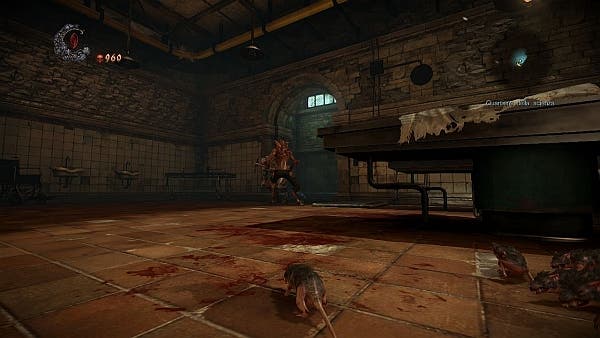
One of the most criticised parts of Lords of Shadow 2 were the stealth sections that saw Dracula turn into a rat. Why did you put that in the game?
Dave Cox: The stealth sections are actually a small part of the game.
Enric Alvarez: Not even six or seven per cent. Even if they were shit, they were just six or seven per cent of the game. But some reviews made it look like that was all that matters. I never agreed with that. It was like, the game was trashed because a few sections weren't the best ideas in the world. I fully admit that. If I could go back in time, probably we would solve this in a different way.
At the same time, the main course of the game is combat, maybe exploration, the story and character development. So when I read some reviews focusing exclusively on stealth - they weren't stealth actually, they were puzzles - I thought, hey, have you seen the rest of the game, which is 90 per cent, easily? That was a bit unfair.
Although I admit, if I had to make the decision again I would drop it. But obviously now it's easy to make that decision. We were taking a risk. We were fully aware we were taking a risk. At the same time, it was consistent with Dracula's set of abilities, even from the literature. Dracula has always been able to transform into a creature of the night. So we did it. Clearly, we were wrong. But at the same time I tell you, this is not enough to trash the game. Maybe mentioning it, saying we hate it, but the game is much more than that. I see few reviews balancing these two things. Many of them were just, okay, this game is shit because of the stealth sections, how dare you turn Dracula into a rat? Things like that.
Did the reception take Mercury Steam or Konami by surprised? Was there an internal expectation that Lords of Shadow 2 would be received more positively than it was?
Dave Cox: Yes, definitely. It caught everybody by surprise. In hindsight perhaps it was to be expected. The first game had a fixed camera, whereas the second game had a free camera - one of the big criticisms of the first game was, we'd like to have a free camera, so we did that for the second one. We greatly improved the combat. It was much more fluid, much more in-depth than the first game. I think that's generally agreed. The adventure element was still there. The characterisation was still there.
Internally, the reviews within Konami were very positive. I would go and present the game to senior management in Japan, including Mr. Kojima, and got very strong, positive feedback. So yeah, it did catch us all a bit by surprise.
It's not nice to be on the end of that kind of criticism, because you spend two, two-and-a-half years of your life working on something you really believe in and you're really passionate about, and when people don't like it, it's a bit of a kick in the teeth. But you have to accept it. You have to accept that a lot of people didn't like what we did. A lot of people did like what we did, though. That's encouraging, especially in the years after.
Enric Alvarez: It's not ideal, but we look forward and try to do better next time.
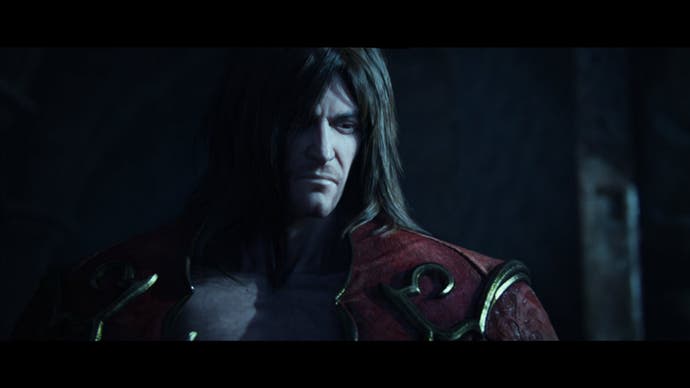
I remember pretty soon after the game came out, I heard about development issues at MercurySteam. There were reports in the Spanish press and elsewhere that criticised you, Enric, directly, as well as the culture at the developer. Was there any truth to these reports?
Dave Cox: No truth whatsoever. I'll let Enric talk more on this, but let me just say one thing. I worked with Enric when I was at Konami, and I've come back to join them as an independent person working at the studio. If working here was a living hell, I promise you, I wouldn't be here. I love working here. These guys are amazing. They're passionate and they love what they do. I certainly wouldn't come back here if it was as it was described by that article.
But I'll let Enric answer that, because you'd quite like the opportunity to set the record straight, wouldn't you?
Enric Alvarez: Sometimes, common sense is the less common of sense. We are in an age when anybody can post what he or she thinks on the internet, and that can be read by millions of people. This is good, in itself, and it's changing our society. But at the same time we need to be aware that just because someone says something, that is not the truth.
I don't want to convince anyone that I am a good person, or MercurySteam is a good company, a good place to be. The fact we are in business for already 12 years, that hundreds of people have worked here, and all these years only one person complained about me, the studio and the project, I don't think this tips the balance in the wrong direction.
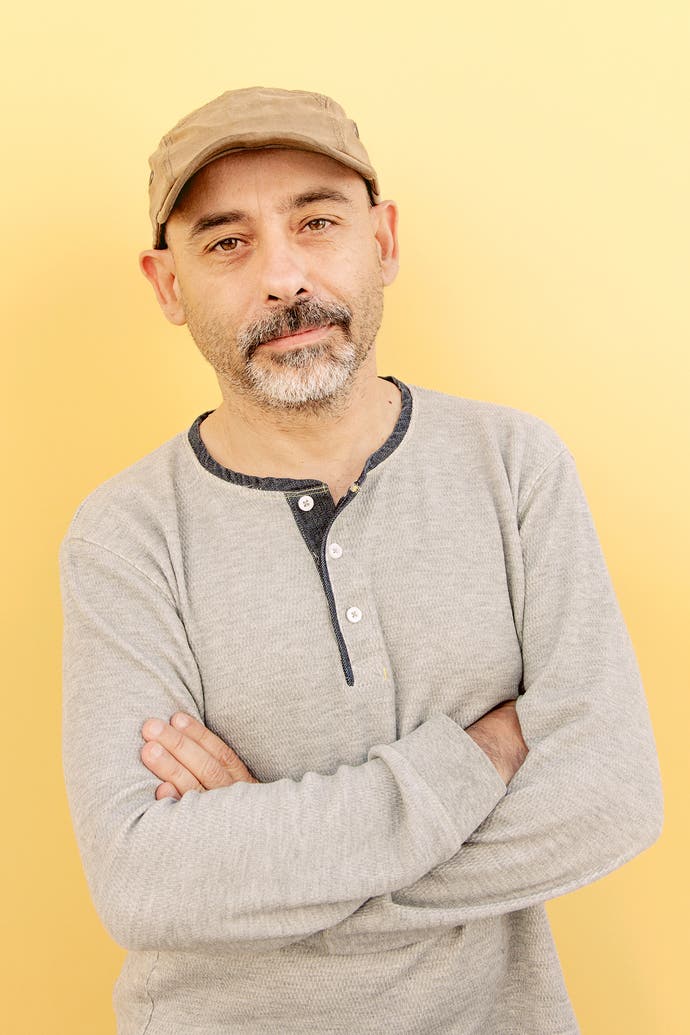
But people seem to assume that just because one guy - and by the way I have to say it was one guy, who was fired, and he was taking revenge, it was as simple as that - that was incredible. When that happened, we decided to stay silent. We thought, nobody is going to give credit to this, because it's obvious this guy is taking revenge, it's obvious this guy hates us, and me, personally, for whatever reason, and it's obvious this guy is anonymous. So I thought - I was naive then - nobody is going to give credit to someone who puts a mask on his face and bullshits about people. But it happened the other way around. It turned into a big shitstorm against me personally and against the studio. And I'm still wondering how that happened.
I'm thinking, maybe, despite all the technology that surrounds us, we haven't changed that much since the Middle Ages, when people united in the main square of the town to burn the witch. They didn't even know what he or she did to deserve that fate. So I'm still scratching my head. I learnt a lot. No doubt about it. But I'm still scratching my head about how people gave credit to someone who is not going with his face and accusing people. It's a lie. I didn't do that. I'm not that bad person, and here are hundreds of people who could tell you that.
It's like when you're driving and you see an accident, you immediately brake to see it. Bad news and talking badly about people somehow gets attention, and everybody discusses it. With the internet you feel like you're in the Middle Ages.
Dave Cox: It's very difficult to defend yourself against something like that, as well. We didn't get the platform to defend ourselves. Nobody asked us about it. This thing just grew, and we just thought, you know what? It's best to keep quiet and just carry on doing what we're doing.
Pretty much everybody in the studio has been here since day one. I'm working with the same people who worked on Lords of Shadow 1 and 2. If it were such a horrible environment, and if Enric was such an asshole, then nobody would work here.
Enric Alvarez: When that happened, I got lots of people queuing in front of my desk asking me to answer that guy. I said, guys, don't do it, because this is a show we haven't been invited to. As soon as you try to fight against a masked guy who isn't giving his face, then you've instantly lost the battle. So we prefer to stay silent. I asked people, please, don't go on the internet to try to answer this, because it would make things worse. Let people say whatever they have to say, and that's it.
But at the end of the day, that was one guy who was a friend of the editor who posted that article in the Spanish press. But that ignited a strange discussion on the internet, which as I said, I'm still scratching my head about. I don't pretend everybody loves me or likes to be here in the studio. You have good days. You have bad days. Sometimes your games do well. Sometimes your games do bad. But, in my opinion, it's quite miserable to go out there in an anonymous way and put the blame on others, when you should be joining them. When we succeed, we all succeed. And when we fail, we all fail.
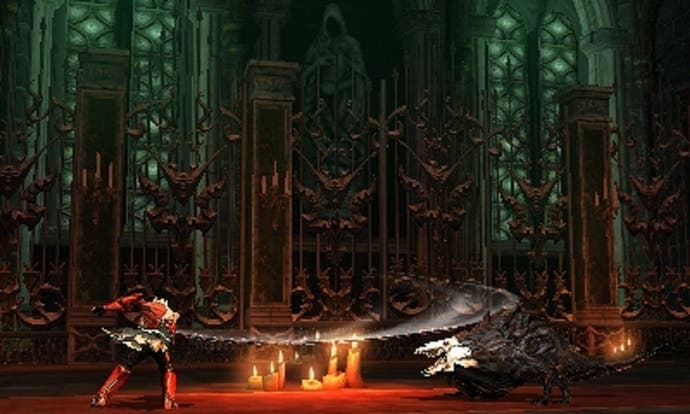
Did Konami ever suggest a Lords of Shadow 3 might happen, but the reception to 2 prevented it?
Enric Alvarez: We always said - and you can check previous interviews - that Lords of Shadow 2 was the final one for us. We always said it, even before all that shitstorm. I always said it's not going to happen, because this is the story we wanted to tell, we need to move to new worlds, we need to explore new characters, new stories and new gameplay. Two years later you can see that was the truth.
The fact there is no Lords of Shadow 3 is totally unrelated to the fact Lords of Shadow 2 was poorly received by the press. I admit, it's easy to make the connection, but that wasn't the case.
Okay. Then, how did you go from working with Konami to not working with Konami?
Dave Cox: Konami decided... let's just say it wanted to go in a different direction in terms of development. It's one of the reasons why the studio I was heading up closed down. They wanted to move more into mobile. They wanted to do more development in Japan. At that time it was simpler to make a clean break, for me personally and for the studio.
I don't think Konami knew at that time what they wanted to do or where they wanted to go. They still obviously had Metal Gear in development. They still had PES in development. But there wasn't a vision at the top of the company about where they wanted to go or what they wanted to do.
It was painful for me from a personal point of view, because it was clear there wasn't a role there for me any more. So I decided after talking to the senior management there that it would be better if I moved on, which was very difficult for me after being there for 17 years and achieving so much. I started off as a lowly assistant product manager, and ended up producing a successful Castlevania series. So that was very difficult.
I remember speaking to you around the time of Lords of Shadow 2, and you heavily suggested you and MercurySteam wanted to reboot Contra for Konami. Did that go anywhere?
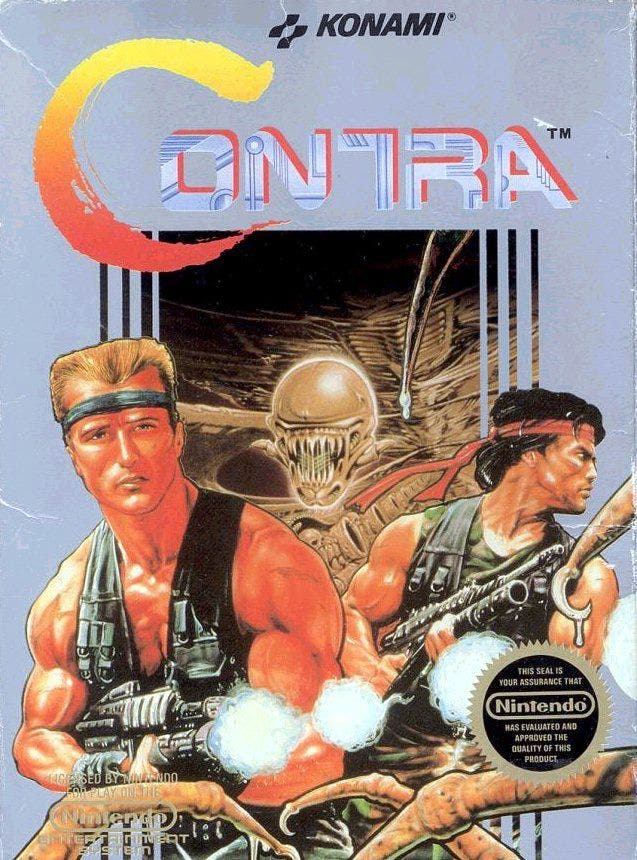
Dave Cox: We talked to MercurySteam about that, and we did have early discussions about Contra. But it just wasn't to be. The planets weren't aligned, essentially.
Because of Konami's change of direction? Or was there more to it?
Dave Cox: That was, essentially, it. But also the guys at MercurySteam didn't want to move on with that relationship as well. So it was mutually agreed that we wouldn't move forward with it. We had discussions about it, absolutely. And there were concepts, and a basic idea was drawn up. But that's as far as it got, sadly.
When MercurySteam decided to go it alone, were there any major changes at the studio?
Enric Alvarez: Being an independent developer is scary all of the time, whether you're working with a publisher or not. I still have to sign a contract, but this one doesn't have a clause that says the publisher can cancel whenever it wants. So you live all of the time with pressure. And it's not that different. At the end of the day, we still need money to open every day.
It is different in the sense that you make your own decisions, you're fully aware of the risks you're taking, and there's no-one else taking that risk along with you. But at the same time, you are the owner of all the decisions. Maybe you are a bit more aware of the consequences of failure. But you know what? At least here at MercurySteam, we always try to do our best. This hasn't changed at all.
Of course, the owners of the company, we are aware the stakes are super high. But at the same time, we've been in this business long enough to at least think we know what we're doing. If that is not the case, we will suffer the consequences. But you suffer the consequences equally if you don't do it well, when you're working with a publisher. So it's not that different.
Where is the funding coming from since the end of the Konami relationship?
Enric Alvarez: You will allow me to keep this private, okay?
Because I haven't seen a Kickstarter.
Enric Alvarez: This is very sensitive, private information. We do our best to keep working, and we are managing to do it. But I don't think that is that interesting to the public. We're still here and hopefully we will be here for many years. As long as there are people who like what we do, we will be here. We take care of the funding. We make this move aware of the potential consequences. But they're the same consequences as when you're working with a publisher.
So you're self-publishing Raiders of the Broken Planet?
Dave Cox: We are, yeah.
That's a big change, then.
Dave Cox: We're able to. We've got the platforms now. With ID@Xbox, Microsoft is supporting us. The guys at Sony are supporting us. Steam is out there. There are lots of ways of delivering content. The old days of pressing discs and having to have distribution, having all that money behind you, are gone now. You can release the game and it's out there straight away for the public to consume and let us know what they think. Five years ago, you couldn't have done that, really. Not the way we want to, anyway.
And you don't have to worry about Hideo Kojima coming into the office with this game.
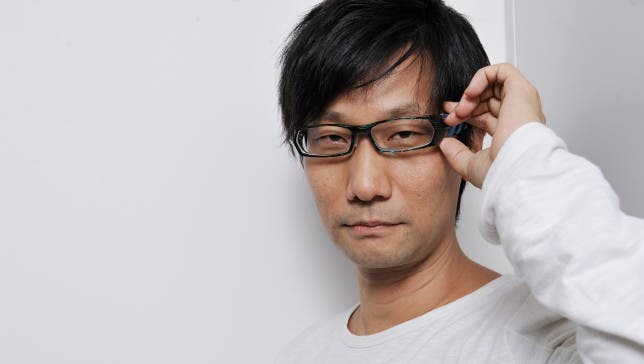
Dave Cox: I've got to tell you, Kojima-san wasn't overbearing. He gave us free reign. He was super supportive. Lords of Shadow 1 wouldn't have got made without Kojima standing up and backing the team. It just simply wouldn't have been done. Japan would not have allowed a western development team to handle a franchise like Castlevania. It was only because we had Kojima on board that we were able to do that. He is the reason why we got that opportunity.
Enric Alvarez: Honestly, I don't have a single complaint about Mr. Kojima. He's a guy who fully understands game development. And he understood and shared our vision for Castlevania. He supported it. That's it, period.
Was his involvement overblown in terms of the development? I remember seeing reports that he was heavily involved, but it never looked like that was the case to me.
Dave Cox: He wasn't involved heavily in the development of the game. In the initial development he had some feedback, which we took on board. But he didn't really get involved until right at the end, when he and his team did the Japanese version. They handled all the Japanese voice actors, actresses, he helped with promotion, doing trailers and stuff like that.
Pretty much from day one he said - I'll never forget it - we were sat in a boardroom in Japan, he said: "This is MercurySteam's project. I don't want to step on anybody's toes. I'm here to offer support. This is your vision. Get on with it. And if you need any help from me, just shout." They came over, showed us some of their technology and how they did certain things. It was a really good working relationship. I've got no complaints, whatsoever.
Hindsight is a beautiful thing, of course, but if you could change one thing about Lords of Shadow, what would it be?
Dave Cox: Hindsight is a wonderful thing, yeah.
Enric Alvarez: May I? I would obviously change a few things about Lords of Shadow 2, okay? Not the execution. Nothing in the execution. But, for example, the first Lords of Shadow, one of the main virtues the game had was depicting an incredible journey through an incredible world. We lost that in the second Lords of Shadow. I'm not saying what we put instead was worse. I'm just saying maybe that was not the right thing to do, considering maybe we should have kept the huge variety the first Lords of Shadow offered. I've thought a lot about, and that is something I would change. Sometimes you have to do what people expect you to do.
On the other hand, what I'm most proud of is we did the most successful Castlevania games ever.
Dave Cox: Not by a small margin, either. By a huge margin.
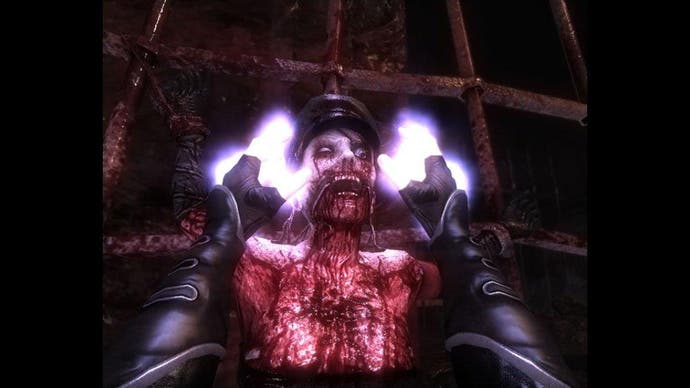
Enric Alvarez: When Dave came into the studio and said, would you be interested in doing a Castlevania reboot? That was a poisoned chalice. It wasn't easy to put Castlevania into the mainstream, as we did. That was quite an accomplishment for a team whose last project was the mediocre Clive Barker's Jericho. We were unable to finalise Jericho the way we wanted. It had good things, but it wasn't a good game overall. I'm not proud of it.
So this puts in value Dave's confidence in the studio, and the value of the incredible achievement. Because if you play Jericho and five minutes later you play Castlevania, you will be amazed that it was the same team.
Dave Cox: For me, the commercial success was a vindication in a way, because it was a long battle to bring that game to market. Internally at Konami, everybody wanted to do something with Castlevania because they felt it wasn't going anywhere, that its day was done - literally, it was going to be shelved. It was literally, Castlevania is finished, we're not interested in moving forward with the brand any more.
The whole idea of a reboot, to do something that would find a more mainstream audience, was a real challenge to get off the ground. Especially as I was a gaijin in a Japanese corporation with no track record to speak of in terms of game development at that time. It was thanks to Kunio Neo, who was the president of Europe at the time, and Mr. Kojima, that we were given that opportunity.
And the success of the game took everybody by surprise, especially if you compare it to other titles that have been released in the Castlevania series throughout history. The obvious one is Symphony of the Night, which is a beloved game and rightly so. But compare the sales success of Symphony of the Night to Lords of Shadow, and we just completely dwarf it - and that's had since 1997 sales. Our sales have been since 2010. So yeah, that was vindication.
But then, on the other side of the coin, having the negativity around Lords of Shadow 2 was a real kick in the teeth. It was really hard to take. But you live and learn.
After the break from Konami, was there a danger the studio would close? I'd heard whispers about layoffs.
Enric Alvarez: You shouldn't believe everything you read. There's a lot of bullshit going in all directions in the game industry. That is absolutely false. We were preparing our way long before finalising Lords of Shadow 2. Two years later, here's the proof: we're talking to you today. And we have a team of more than 100 people in the studio. I think we're breaking the mark of 130. Most of these guys have been working here since day one.
Dave Cox: All the core leads are the same leads who were on Lords of Shadow 1.
Enric Alvarez: So the image of the studio is bullshit, honestly speaking.
Is the rumour that you created a Metroid prototype for Wii U and 3DS also bullshit?
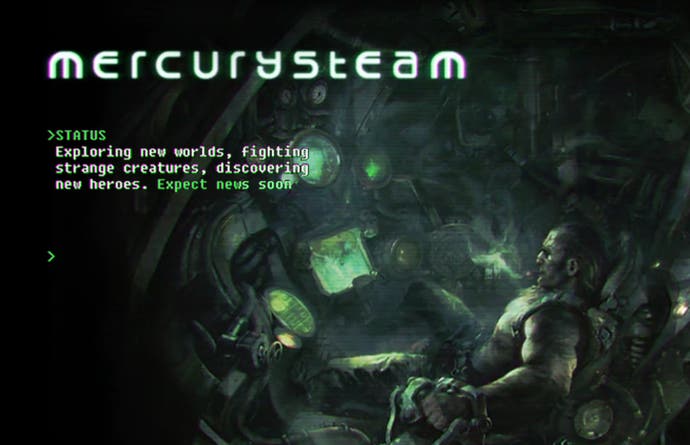
Enric Alvarez: That's more bullshit.
Really?
Enric Alvarez: People have a lot of imagination and time to think about stuff, but that's not necessarily the truth.
So you're saying, categorically, you did not work on a new Metroid prototype for Wii U and 3DS?
Enric Alvarez: This is exactly what I'm saying.
Dave Cox: We're primarily working on Raiders. We are doing other things. But Raiders is the focus of the studio right now.
Enric Alvarez: I think this one grew from an interview we did when we were finalising Mirror of Fate. While doing an interview, somebody asked us about what other game we would like to do, and I think the Metroid thing came from that. Or it was about the Metroid influences in Mirror of Fate. The rest is pure invention.
Okay. But the vast majority of people at the studio right now are working on Raiders?
Dave Cox: Yep, absolutely. The production value is the same we had for the Lords of Shadow games. It's a more complex development because it's a multiplayer online game. It's a huge undertaking because it's self-financed and self-published. It's the most ambitious project we've done as a studio. It's fair to say that. Just getting the gameplay mechanics working the way we want them to has been a challenge. But it's starting to come together now.
We're going to do regular betas now for the rest of the year. We're going to introduce Xbox One and PlayStation 4 betas later on this year. Hopefully when people get their hands on it they'll realise it's a different proposition to what they thought. In many ways we're coming under the radar, a bit like Lords of Shadow 1. People didn't really know much about the game until it hit, and I'm hoping with this game, when people get their hands on it, they'll be pleasantly surprised.
It's all about the multiplayer, this game. It's four versus one multiplayer. Everybody's first impression is it's like Evolve, but it's not like Evolve at all.
The 4v1 thing is interesting. The perception is Evolve struggled after it came out. Fable Legends was cancelled. Did that cross your mind?
Dave Cox: In terms of Fable I don't think it means anything. The thing about Evolve is you play as a monster, which is very different gameplay compared to the other side of the team. With our game, any member of the team can switch sides. So you're playing against another player who has the same abilities as you. The antagonist plays alongside the game's AI, so they're not on their own. They also have bosses and sub-bosses supporting them. So it's different to Evolve.
And because of the setting and the tongue-in-cheek, humourous aspect to the characters, there's a huge amount of variety. It's not a full-on, fast-paced MOBA shooter. It's a much slower, tactical strategic game. You use the cover system, you pick your moments, and you have to fight enemies and the other players to get the ammo. You can't go in all guns blazing, because you soon run out of ammo. So you've really got to think about what you're doing. It's a slower-paced shooter than people were expecting. And that's been the feedback we've had from the beta.
